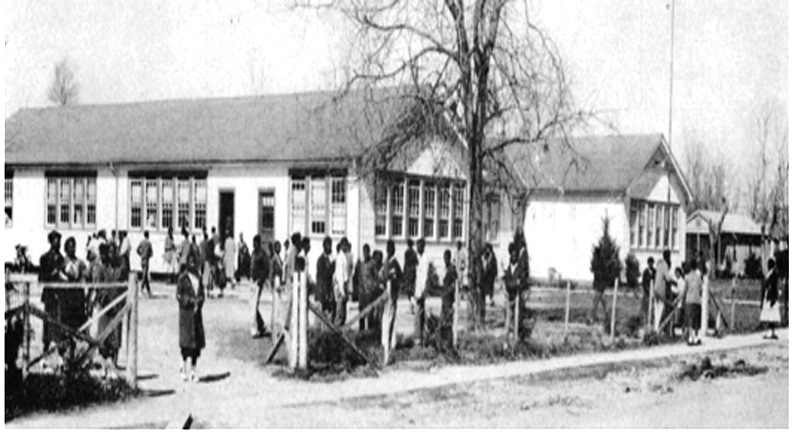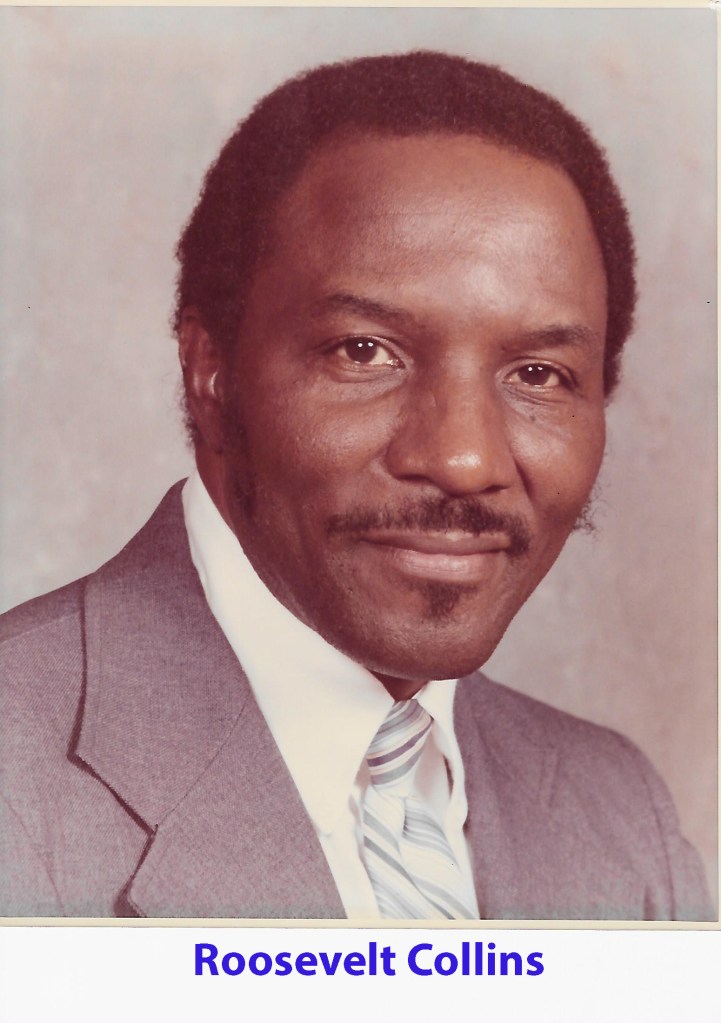

History of Rosenwald High School
Pointe Coupee
Reposted 02/22/18 – Originally Posted 02/06/18
By Brian J. Costello, OT, Kt HRE, OLJ
In keeping with the observance of Black History Month, the Pointe Coupee Historical Society will host showings of Rosenwald:The Remarkable Story of a Jewish Partnership with African American Communities, an Aviva Kempner Film, during February in the Julien Poydras Museum and Arts Center auditorium, 500 W. Main St., New Roads.
Rosenwald is a documentary on the partnership by which Sears, Roebuck & Company head and philanthropist Julius Rosenwald (1862-1932) and African American communities in the South built schools during the early 1900s.
The service of New Roads High School, built in 1950 and pictured here in 1955, was combined with that of the Rosenwald School of 1922 to form a consolidated Rosenwald High School of grades 1-12 in 1959.
For Pointe Coupee Parish, the cooperation of Rosenwald with local leaders was a milestone in education for African American youth. Schools established by the Freedmen’s Bureau in New Roads and other parish communities in the wake of the Civil War were short-lived owing to lack of funding by the federal government and distressed local conditions owing to repeated floods and epidemics. The goals of the Pointe Coupee Industrial and High School on False River in 1900 by Prof. P.L.A. Planving were stymied by his tragic assassination only three years later.
Most public schools for Pointe Coupee’s African American youth during the late 19th and early 20th centuries, supported in part by the School Board, were conducted in Baptist churches or benevolent society halls, with limited supplies and shorter terms than those for their white counterparts. Older residents further recall their frequent inability to travel the often-considerable distances between home and school owing to adverse weather conditions and lack of transportation.
AREA ROSENWALD SCHOOLS
Julius Rosenwald, a self-made millionaire, was the son of German Jewish immigrants. He, like many other Americans, was alarmed by the accounts of anti-Jewish pogroms in early 20th century Russia and began to more fully realize the ill treatment of the African American population in his own country. Developing a friendship with Booker T. Washington, Rosenwald extended assistance to Tuskegee Institute and helped coordinate the building of schools for African American children throughout the south.
Through fundraising and “sweat equity” participation within the respective communities, Rosenwald was able to construct 5,357 Rosenwald schools by the time of his death in 1932. These accounted for approximately one-third of all African American elementary schools prior to the end of United States educational segregation in 1954 and the resultant construction of larger, more modern facilities.
In Pointe Coupee Parish, Julius Rosenwald and local supporters were able to build schools in New Roads, Ventress and Lottie. The New Roads school, conducted by two teachers, was established during the 1921-22 budget year on a 2.5-acre lot on upper New Roads St. Its total cost was $2,750, for which Rosenwald contributed $800, African American citizens $1,200, white citizens $250 and public funding $500, according to the Fisk University Rosenwald database.
The Ventress Rosenwald school, established in the 1922-23 budget year on a two-acre lot on the Island of False River opposite New Roads, was also conducted by two teachers. Its cost of $2,900 was alleviated by Rosenwald’s contribution of $700, $1,600 by local African Americans and $600 by the general public.
In Lottie, the Rosenwald school was a one-teacher facility, built on a two-acre lot, in the 1923-24 budget year. Its total cost was $1,375, to which Rosenwald contributed $400, local African Americans $575, whites $100, and the general public $300.
By the 1955-1956 school term, the Rosenwald School of New Roads included grades 1-8, while nearby New Roads High School, established in 1950, accommodated grades 9-12. The two institutions were consolidated in 1959 as Rosenwald High School, housing grades 1-12. The Pointe Coupee Parish School Board’s subsequent parish-wide consolidation program included the pairing of Poydras High School and Rosenwald, with Poydras becoming the elementary facility and Rosenwald the high school by 1983. The year 1991 was marked by the opening of Pointe Coupee Central High School, the closing of Poydras, and Rosenwald being designated the area’s elementary school. Thus, the hallowed Rosenwald name is perpetuated.
THE FILM, LOCAL SHOWINGS
In addition to Julius Rosenwald’s support of African American education, the film Rosenwald also documents his building 25 YMCAs and YWCAs for African Americans, establishment of the Museum of Science and Industry, construction of the Michigan Boulevard Garden Apartments for African Americans moving to Chicago, and monetary assistance for training the valiant Tuskegee Airmen. Additionally, the documentary chronicles the impact of the Rosenwald Fund which provided grants to many now well-known African American artists and writers in the mid-1900s.
In continuing an admirable Jewish-African American partnership, two of Julius Rosenwald’s granddaughters provide funding to re-establish the Rosenwald schools, and a concerted effort is underway to preserve the surviving landmarks to self-reliance and community pride.
Mrs. Nancy Bergeron with the Pointe Coupee Historical Society announces that the film Rosenwald: The Remarkable Story of a Jewish Partnership with African American Communities will be shown in the Poydras Museum and Arts Centre auditorium for parish students and will be played for the general public, at a nominal $5 admission fee, at 6:30 p.m. on Thursday, February 22.
Pointe Coupee Historical Society News Release
Photo provided by Pointe Coupee Historical Society


